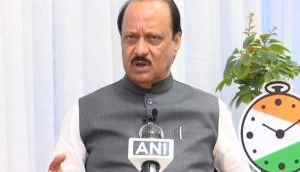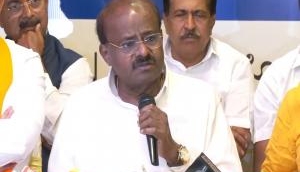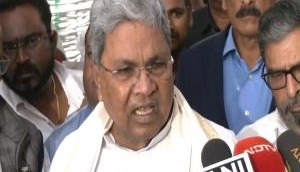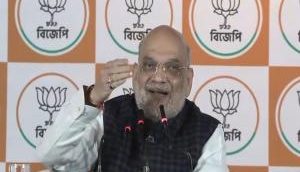
Today, if we are one of the fastest growing economies in the world, it has been possible only because of the liberalisation of India's economy which took place on 1 July 1991.
Then finance minister and former prime minister Manmohan Singh devalued the rupee for the first time, setting the wheels in motion for India to achieve its true economic potential. The quiet economist has been heralded by many as the chief architect of India's economic reforms.
As India's marks the silver jubilee of its economic liberalisation, Singh, in an interview with the Indian Express, spoke of the reform agenda of economic liberalisation, the devaluation of the rupee, and Indian economy 25 years on.
Excerpts from the interview:
On the state of our economic reforms
"Twenty-five years on and yet the process of economic reforms in India continues to be trapped in the circumstances in which it began: act only when there is a crisis."
Though India is a $2trillion plus economy, over 6.3 times more than in 1991.
On the government mortgaging gold due to BoP (Balance of Payment) crisis
"By the time the government took over, one installment of gold had already been mortgaged and dispatched abroad. I allowed the second one to go without much fanfare. That really shocked the country... the mess that the economy was in. I used that occasion to honour the commitment of the previous government to mortgage gold but at the same time, I sensitised the country on how serious the economic situation was, and that if we do not want to go down the disastrous path, reforms were the only answer."
He said that the Budget for 1991 had set the roadmap that the then government wanted to adopt for the next two to three years giving SEBI legal status before which it was merely an advisory body.
On being a loner in Congress
"There was a lot of opposition in the country and within the party (Congress). But Prime Minister Rao's political management made it possible to overcome all that. I was a loner and had no group. Even in the Congress Parliamentary Party meeting, when the Budget was being discussed, there was a lot of opposition and the only people who supported me, (were) in favour of what I had done, were Nathuram Mirdha and Mani Shankar Aiyar."
About allowing foreign investment in a closed economy
"I was going to England and I knew the city would be interested. So I had prepared for that route of reforms. It was also in London, if I remember, and I may be wrong, that I announced the opening up of the Indian markets to foreign investment. Over a period of time, we built it and moved cautiously and opened up a lot later."
According to the Indian Express report, foreign currency reserves in 1991 were $1.2bn and reached $339.57bn in 2016.
The report says that Indian economy, which today is more globalised than agrarian, has a total of 1058.86 mn telephone subscribers today. In 1991, India had 5.07 mn telephone subscribers.
On his bid to resign after the 1992 stock market scam
"Since the constructive responsibility is that of the finance minister, I think it is appropriate that I resign. I gave the Prime Minister my letter of resignation, which he kept for six to seven days and sent it back later saying, 'You continue'."
On RBI Governer Raghuram Rajan
"I spotted him and first engaged him as an honorary advisor to the Prime Minister. Then when the position of the chief economic advisor fell vacant, we got him there and he told us that when the time for the RBI Governorship comes, he should be considered for the job. I was able to honour that commitment. P Chidambaram agreed with me, and that appointment turned out to be a creative one."







![BJP's Kapil Mishra recreates Shankar Mahadevan’s ‘Breathless’ song to highlight Delhi pollution [WATCH] BJP's Kapil Mishra recreates Shankar Mahadevan’s ‘Breathless’ song to highlight Delhi pollution [WATCH]](https://images.catchnews.com/upload/2022/11/03/kapil-mishra_240884_300x172.png)

![Anupam Kher shares pictures of his toned body on 67th birthday [MUST SEE] Anupam Kher shares pictures of his toned body on 67th birthday [MUST SEE]](https://images.catchnews.com/upload/2022/03/07/Anupam_kher_231145_300x172.jpg)






